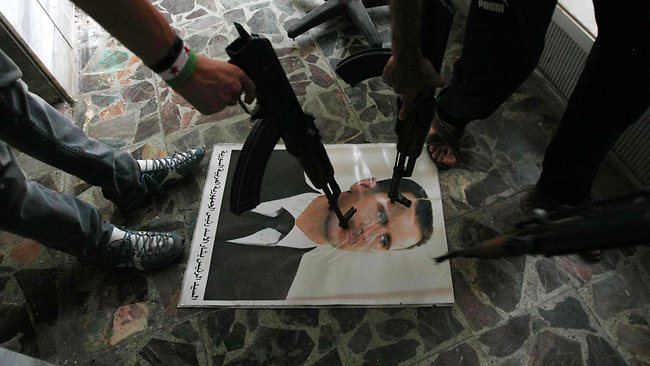Reuters – Egypt’s foreign reserves rose to around $17.42bn in March from $17.307bn in February, central bank governor Hisham Ramez said, edging further away from critical lows they hit last year.
The reserves fell sharply following the uprising that ousted President Hosni Mubarak in early 2011, but have been bolstered since last summer when Gulf Arab states started sending billions of dollars in aid after the army deposed Islamist President Mohamed Morsi.
“The reserves that I have have increased in the last month,” Ramez said in a television interview late on Tuesday.
“We will announce about 17.42bn [dollars], we have money coming in from things that are very different from the Suez Canal, there’s people coming in selling dollars.”
The Suez Canal, the fastest shipping route between Europe and Asia, is one of the country’s main sources of foreign currency. Its monthly revenues hit their lowest in four years at $339.3m in February, the latest month for which Egypt’s state information portal has data.
It was not immediately clear whether Gulf states sent more aid during March, when the central bank sold around $500m in foreign currency auctions.
The bank has held regular dollar auctions to commercial banks since December 2012 in order to slow declines in the Egyptian pound, but dollar shortages continue to fuel a foreign currency black market.
At an auction on Monday, it sold $38.3m at a cut-off price of EGP 6.9575 per dollar. On the black market the dollar was offered for around EGP 7.40.
Egypt’s Central Bank said on Tuesday it had covered the entire backlog of dollars owed to foreign investors seeking to repatriate funds from the country, but did not say how much money was involved.
“The amount was big and I won’t announce it,” Ramez told privately-owned channel CBC, adding the move was important for Egypt’s investment climate.
“The most important thing in dealing with foreign and local investors is when we say we will do something that we go through with it.”
Saudi Arabia, Kuwait and the United Arab Emirates have showered Egypt with aid in the form of central bank deposits, petrol products and grants since Morsi’s ouster. Over $12bn was pledged.
Qatar, on the other hand, had been a firm backer of Morsi’s Muslim Brotherhood and lent or gave Egypt $7.5bn during the year the Islamist was president.
Last year Egypt returned $3bn to Qatar, and a central bank source said in January the same amount would be returned in 2014.
Ramez said this year Egypt will return $2.5bn to Qatar around November. “I am not worried because I paid $3bn in more difficult circumstances,” he said.
Egypt’s current account between October and December recorded a deficit of around $1.5bn, after hitting a surplus in the preceding three months on the back of the Gulf aid. Egypt in December repaid $1.5bn of over $6bn it says it owes to foreign oil companies.
Its foreign reserves fell to a critical low of $13.5bn last year, from $36bn before Mubarak was toppled.



